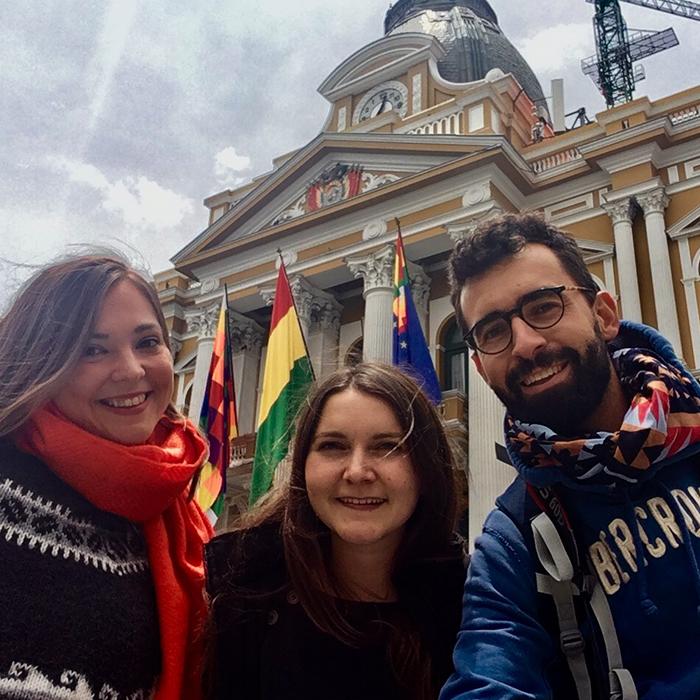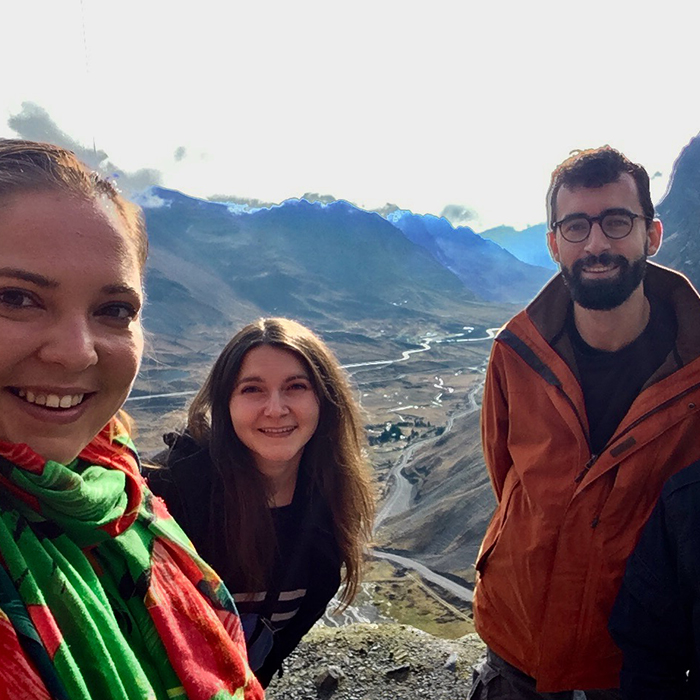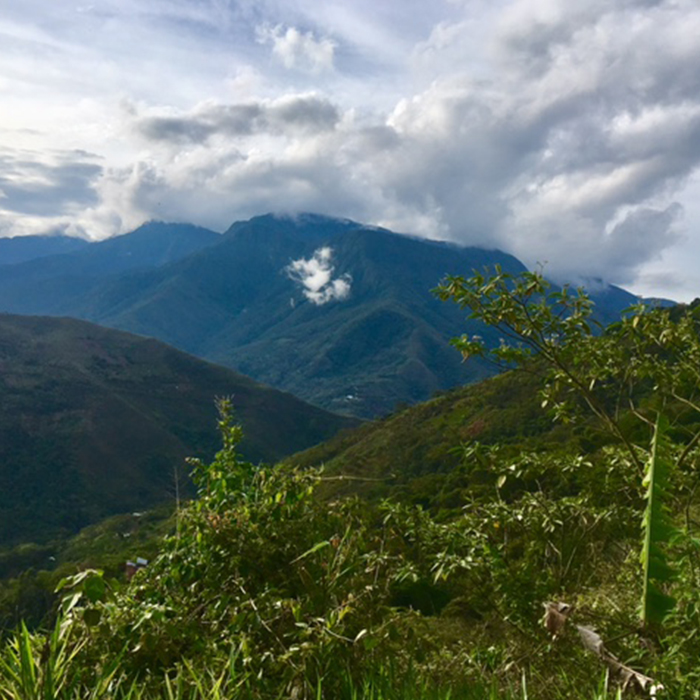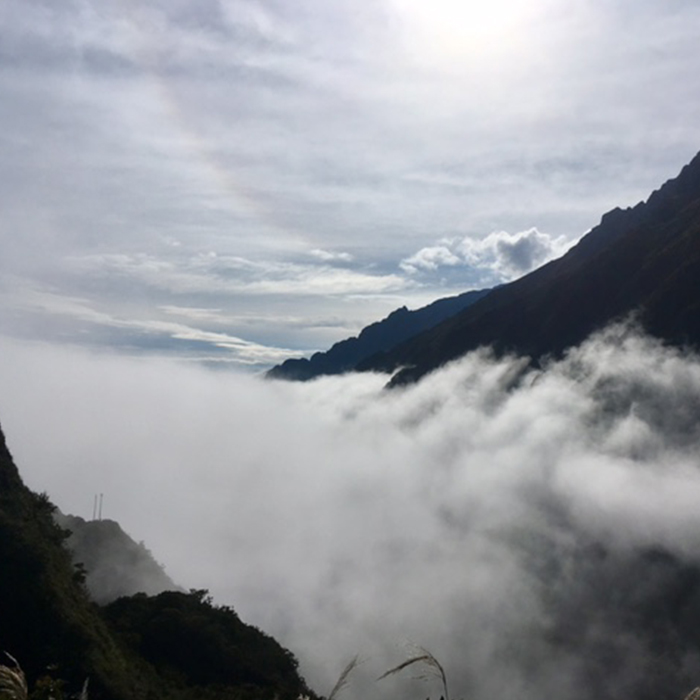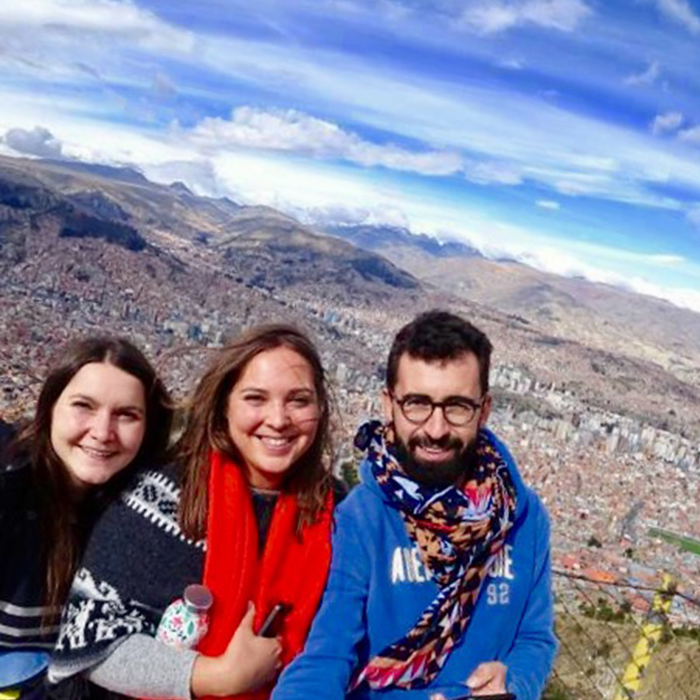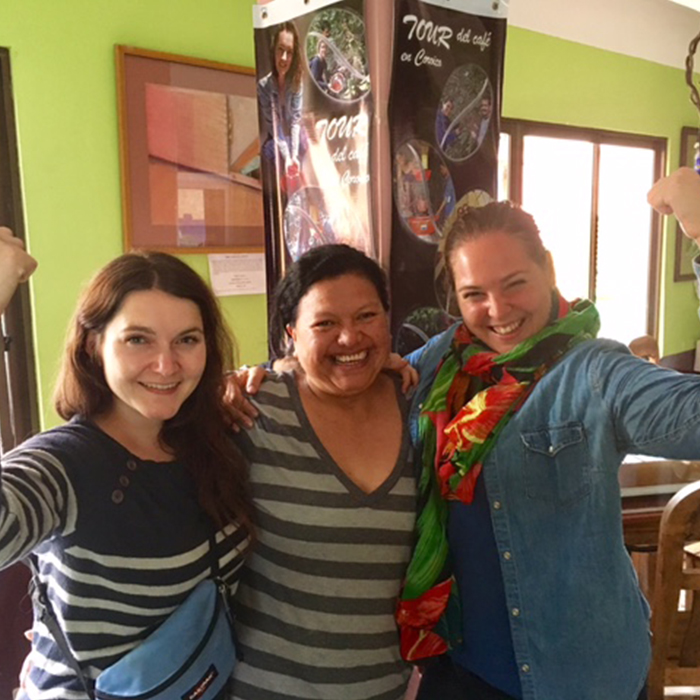Bolivia
October 2018
An unforgettable journey. A shock, in every sense of the word. A country of tough and ingenious farmers, whose work is supported by Charles Liégeois Roastery with SOS Faim and Exki.
When you step out of the plane, at an altitude of 4,000 metres, you are standing on the highest airport runway in the world. The wind hits you, and you can feel the lack of oxygen. Then you head out on the 3.2 m wide Road of Death to visit the communities supported by SOS Faim, and to Coca Carasco, the cooperative we are working with.
I was ill for 7 days out of the 10-day journey, but I was happy to see that our support is making a difference, that the farmers are developing long-term projects. One of them is building an ecolodge on his plantation, for visiting tourists who want to live alongside farmers. Another presented a business plan for financing hives he wanted to set up among the coffee plants, in order to improve his crop and to sell honey. A third grows flowers along with his coffee plants: he sells them at the market, enabling him to buy organic compost.
It takes a lot of imagination to find alternatives to the cultivation of coca, which is legal if grown for local consumption. Official figures show Bolivia has 7 000 hectares. But it is estimated that illegal production for drug dealers covers 22 000 hectares. Moreover, because Bolivia is just above the poverty threshold, it risks having subsidies and grants cut, which have actually helped achieve significant improvement in coffee production, and in the lives of the families who work there. What choice will they have then?
Bolivian coffee from Charles Liégeois Roastery : Coraca Carasco, a floral, mild coffee, with a round taste and subtle berry notes, produced by the 59 families who are members of the Coraca cooperative, in five communities (Moscovia, Siempre Unidos, Antofagasta, Uchumachi, Villa Union).
